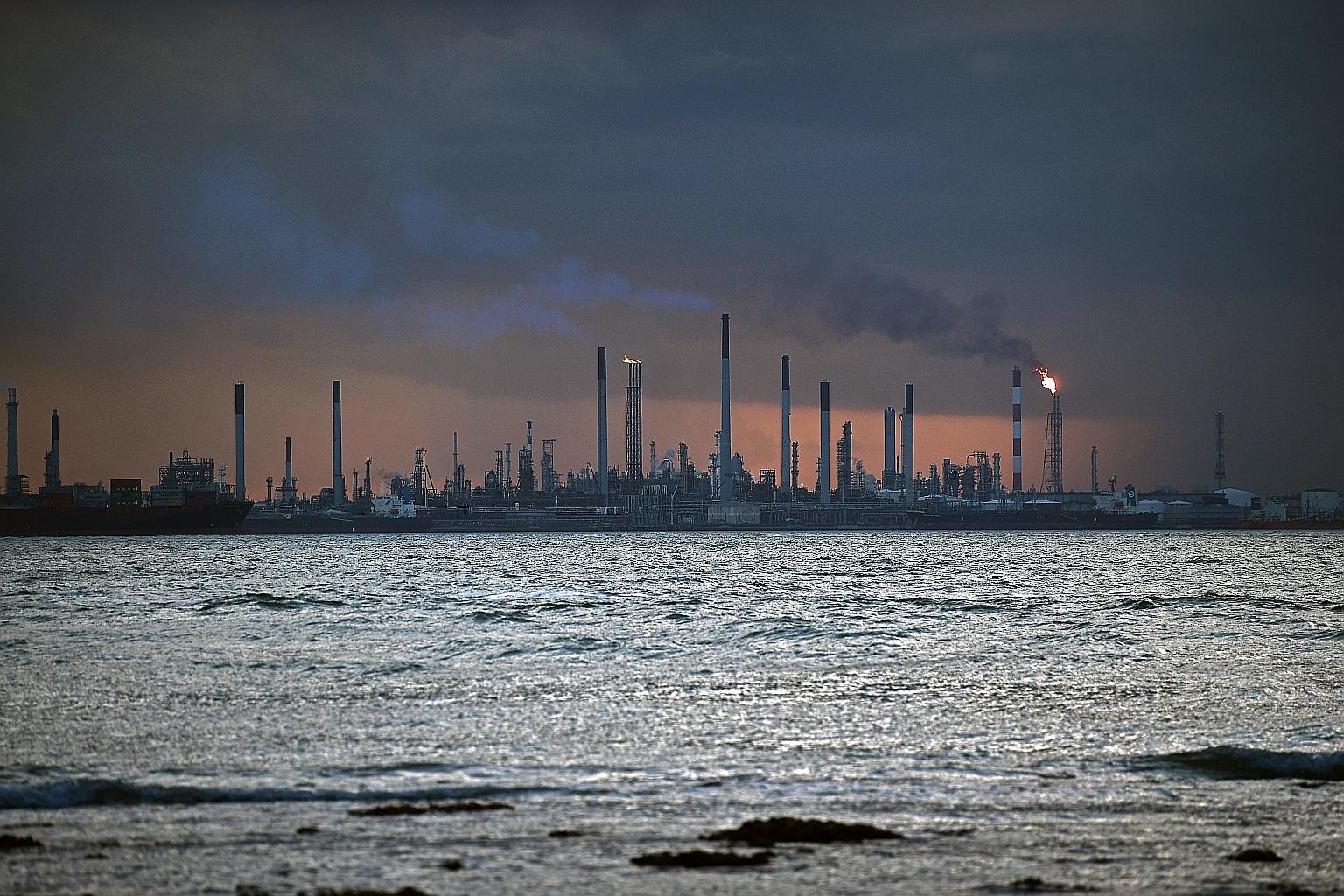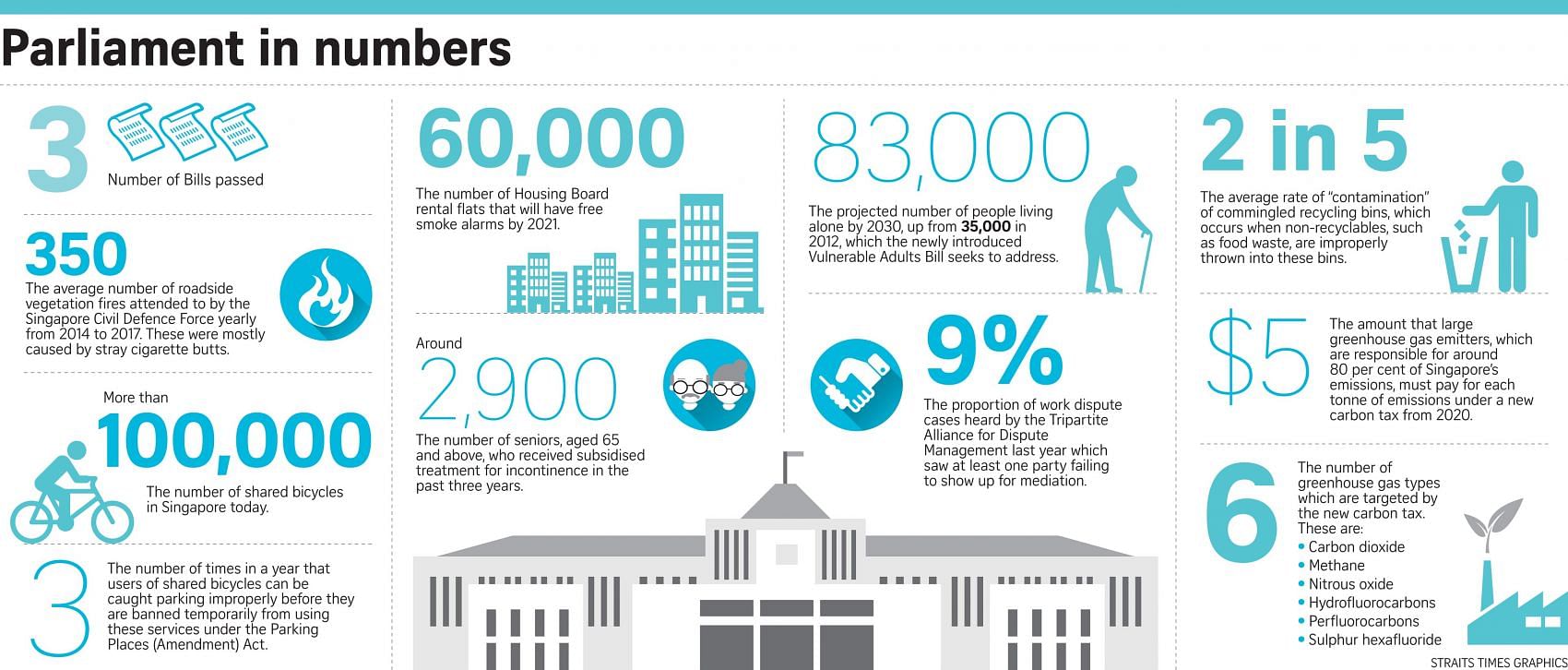Carbon tax Bill passed amid competitiveness concerns
MPs support Bill but wonder if Republic would lose out to those countries with no such tax
Sign up now: Get ST's newsletters delivered to your inbox

The impending carbon tax is aimed at curbing large emitters from polluting the environment and spurring them to use cleaner sources of energy.
ST PHOTO: KUA CHEE SIONG
As the first country in South-east Asia to put a price on carbon emissions, Singapore could run the risk of becoming less competitive than countries with no such tax, said some MPs as they asked for more details about the impending carbon tax.
Yet, all eight who spoke up in Parliament yesterday supported the Carbon Pricing Bill, saying it was a crucial step in ensuring that future generations are shielded from the worst effects of climate change.
Climate change is caused by greenhouse gases like carbon dioxide, which trap heat.
But from next year, all facilities producing 25,000 tonnes or more of greenhouse gas emissions in a year will have to pay a carbon tax, as Parliament passed the Bill to give Singapore the legal muscle to effect this.
The tax is aimed at curbing large emitters from polluting the environment and spurring them to use cleaner sources of energy.
Mr Henry Kwek (Nee Soon GRC) asked if the tax could impact the competitiveness of Singapore's export-oriented petrochemicals industry. But Minister for the Environment and Water Resources Masagos Zulkifli stressed that the pursuit of environmental sustainability and economic growth is not a zero-sum game.
"It is a strategy to stay competitive. They can do good and do well at the same time," said Mr Masagos, citing two firms that have done both.

Fuel company Chevron Oronite, for example, netted annual energy savings of $1.8 million and cut carbon emissions by 4,800 tonnes by installing new equipment.
GlobalFoundries, a semiconductor company, redesigned equipment and reduced its fuel consumption, resulting in annual cost savings of $260,000 while producing 640 tonnes less carbon.
But Mr Masagos acknowledged that the 30 to 40 companies affected by the carbon tax needed time to make adjustments.
To help companies move towards a low-carbon future, the Government has set the carbon tax at an initial $5 per tonne of greenhouse gas emissions from 2019 to 2023. This rate will be reviewed by 2023, with plans to raise it to between $10 and $15 per tonne of emissions by 2030.
Workers' Party Non-Constituency MP Leon Perera said it was prudent to set the carbon tax at a low level initially, but asked if there were other schemes to nudge Singapore towards a smaller carbon footprint in the longer term.
Mr Masagos said the Economic Development Board has been piloting a financing programme in which companies that are not able to afford the upfront costs of energy efficiency projects can apply for loans through a third-party financier. He also said revenue from the carbon tax will be used to fund green initiatives of large emitters as well as small and medium-sized enterprises.
As for the tax effect on households, Mr Masagos said, in response to queries from MPs like Ms Lee Bee Wah (Nee Soon GRC), that it is likely to be small, in the range of 1 per cent of total electricity and gas expenses on average.
Still, an additional U-Save rebate will be given for three years to help Housing Board households. Eligible households will each receive $20 more a year, from next year to 2021.
This will tide them over when their electricity and gas expenses are expected to rise, and give them time to reduce their consumption, he added.
Beyond the rebates, it is also important to encourage energy-saving habits in households, he said.
A lamp replacement programme is one way of doing so, with the Government helping families living in one-and two-room HDB homes by replacing their bulbs with more energy-efficient LED lights.
He added: "The Bill is an important step forward - not only in encouraging industry to do its part for the climate, but also in readying our economy and strengthening our competitiveness as the world transitions to a low-carbon future.
"Companies ignore these realities at their peril."


